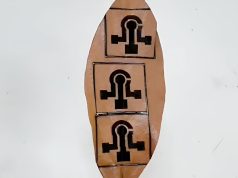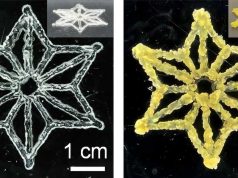Researchers at the University of Colorado Boulder have developed a method to produce 3D printing material based on coffee grounds. According to the scientists, this can be used to sustainably produce a wide variety of everyday objects.
The team, led by Professor Michael Rivera, mixes used coffee beans with water, cellulose and xanthan gum to form a paste-like mass. This can then be processed in commercially available 3D printers.
After drying, the printed objects are similarly stable to concrete. According to the developers, the material is suitable for plant pots, jewelry or even espresso cups. If an object is no longer usable, it can be melted down and printed again.
The researchers see their process as a step toward more sustainable 3D printing. Most devices currently use petroleum-based plastics that are difficult to degrade. Coffee grounds could offer a more environmentally friendly alternative and avoid waste. In the long term, the scientists hope to tap into other plant-based materials for 3D printing.
Subscribe to our Newsletter
3DPresso is a weekly newsletter that links to the most exciting global stories from the 3D printing and additive manufacturing industry.






















